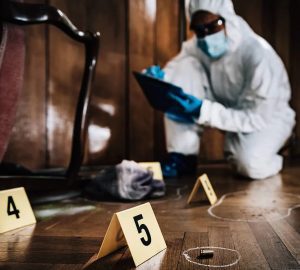Addiction to alcohol and other substances destroys not only the addicted person’s life, but also the lives of his friends and family Rehab therapy is designed to assist addicts in recovering by teaching them how to clean away the damage of the past, appreciate what is present today, and make healthy choices that will build a happy future. Addiction is a very serious problem that impacts millions of lives worldwide. This mental disorder compels you to repeatedly use substances or engage in certain behaviors despite knowing that there are harmful consequences. Among its most severe consequences, addiction destroys careers, friendships, and marriages. Moreover, it threatens your health and safety unless managed. Similar to how addiction is a gradual progress, the treatments and the process of recovery involved do not provide results overnight. But, knowing what to expect in quality addiction rehab centers like Jackson House Rehab can help put your mind at ease. You can read more about these reliable treatment centers so you can prepare for a better experience.
How Long Is Your Stay?
Inpatient rehab or residential treatment means staying at a rehab center for the duration of your treatment program instead of returning home every night.
The common length of stay in most alcohol and drug rehab centers is 28 to 30 days, 60 days, or up to 90 days. The National Institute on Drug Abuse (NIDA), however, suggests people spend the longest time frame (90 days) in treatment.
Check-In
The rehab process will start the moment you check in. You’ll have an intake interview with a staff member or fill out a questionnaire for them to know more about you, the nature of your substance abuse, and if there are any other co-occurring or underlying conditions.
According to NIDA, the intake process is critical since it helps in the customization of the treatment to the specific psychiatric and physical needs of the individual.
Detox And Withdrawal
This is the probably hardest part of the early stages of taking part in an addiction rehab program. Detoxifying simply means removing all traces of the substance from the body, ensuring that the patient is physically stable and can start therapy.
Addiction happens when your body becomes used to having these substances in your body. During detox, these substances are gradually removed, which forces the brain to adjust to the sudden drop and causes the unpleasant and sometimes dangerous symptoms of withdrawal.
Some of the physical symptoms you’ll experience include the following:
- Headache
- Shakiness
- Irregular or rapid heartbeat
- Fever
- Nausea
- Clamminess or sweating
- Seizures
Psychologically, you’ll experience:
- Agitation
- Depression
- Anxiety
- Mood swings
- Hallucinations
- Nightmares
- Insomnia
The addiction rehab process aims to minimize the negative and dangerous impact of withdrawal symptoms. These symptoms are best managed in a professional facility via medical detox. Medications and around-the-clock support from expert medical personnel can help ease and manage these symptoms to make the detoxification process safer and easier to bear.
On average, the detox process can take up to 7 to 10 days. This, however, varies for different people and other factors such as the following:
- The severity of the withdrawal symptoms
- The amount of substances you’ve been consuming
- Your mental and physical functioning
Intensive Therapy
Once you complete your detox, various kinds of therapies will be used throughout your recovery process to help you overcome cravings, avoid relapses, and stay clean throughout your life.
- Individual Therapy
This is a one-on-one session with a health professional who will help you work on your addiction. During these sessions, you’ll take an honest look at yourself, your addiction, and the impact it’s had on your wellbeing, psyche, and life.
Your therapist can also help you determine the triggers to your addiction and how you can deal with or eliminate them in a healthy manner.
In addition, your therapist can also customize the right kinds of therapy you’ll undergo to ensure effective results. Therapy comes in several forms; however, research shows that behavioral therapies are the most effective form in treating addictions. These are the most common behavioral therapies used for addiction:
- Motivational Interviewing
- Cognitive Behavioral Therapy (CBT)
- Interpersonal Therapy
- Dialectical Behavior Therapy
- Trauma-Focused CBT
Sessions are often held in your therapist’s office. Although the exact frequency and duration of each session vary, most people meet with their therapist at least once a week for an hour or two.
- Marriage or Family Therapy
Sometimes, relationship or family dynamics contribute to the way an individual responds to addiction treatment. Thus, therapy sessions with the patient’s spouse or family can offer an avenue of support for recovery.
Family members or your partner may unknowingly be enabling your substance abuse with how they respond to your behavior. By learning how they may be contributing to your behaviors that result in addiction, they can learn to change their patterns and become a reliable support for your recovery.
In addition, therapy sessions with your partner or family can provide a source of self-esteem and strength for you. It serves as a reminder during and after treatment recovery that you have loving support and someone who believes in your ability to make the desired changes in your life.
Most rehab programs will include family members, partners, and friends throughout the entire process—from the initial assessment up to the follow-up aftercare.
Aftercare Planning
Most people think that completing the addiction rehab program is the end. However, recovery is, in fact, an ongoing process that takes effort and time. In order to increase your chances of remaining sober, you need a good aftercare plan.
You and your therapist or counselor will plan out continuing care as you move out of the structured and strict treatment environment and into the real world.
Your aftercare plan will be full of medical and social support services to help in your transition. It can include one or more of the following:
- Recovery meetings
- Sober living homes or halfway houses
- Outpatient treatments
- Follow-up counseling or psychotherapy sessions
- Medications and medical evaluations
Ultimately, having an aftercare plan can help increase your chances of long-term recovery and reduce the chances of a relapse, making it an important component of your addiction treatment.
Conclusion
If you’re suffering from addiction, it’s critical that you get help. It may seem scary, but rehabilitation is a positive experience that offers people like you the best chance to manage this difficult disorder on a long-term basis. And with the above information, you should now be better prepared for the whole experience and recovery process.








